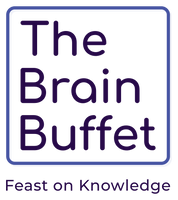Trimester Wise: Foods and Drinks to Avoid During Pregnancy in the US
- The Brain Buffet

- Sep 10, 2025
- 4 min read
Pregnancy is an incredible journey that brings anticipation and joy but also requires careful attention to your diet. What you choose to eat or drink can have a significant impact on your health and the baby’s development. Finding everyday life solutions to balance nutrition during this time is essential. The Brain Buffet brings you insights tailored for readers in the United States, ensuring you’re well-informed to make the best choices for you and your baby.
First Trimester: The Foundation
The first trimester is vital for your baby's development. During this time, being aware of your nutritional choices is crucial. Here are some specific foods and drinks to steer clear of:
Raw or Undercooked Seafood, Eggs, and Meat
Raw or undercooked seafood, eggs, and meat can carry harmful germs. For instance, consuming raw oysters can expose you to Vibrio, a bacteria that may cause severe illness. Opt for fully cooked options to minimize foodborne illness risks.
Unpasteurized Dairy Products
Unpasteurized dairy can harbor listeria, which can lead to serious complications for you and your baby. For safety, always select pasteurized dairy products, like milk and cheese, which are safer and still nutritious.
Caffeine
While moderate caffeine consumption is usually safe, too much may cause complications. The American College of Obstetricians and Gynecologists recommends limiting caffeine to 200 mg per day. This amount is roughly equivalent to one 12-ounce cup of coffee or two 8-ounce cups of tea.
Alcohol
There is no known safe amount of alcohol during pregnancy. Research has shown that alcohol consumption can lead to fetal alcohol spectrum disorders, affecting your baby’s growth and development. To ensure the best outcomes, abstain from alcohol completely.
Certain Fish
Certain fish are high in mercury, which can harm your baby's developing nervous system. Fish like shark, swordfish, and king mackerel should be completely avoided. Instead, opt for low-mercury fish such as salmon, which is also rich in omega-3 fatty acids beneficial for your baby.
Second Trimester: Building Blocks
As you move into the second trimester, your baby experiences rapid growth. Here’s what to avoid to ensure both you and your baby stay healthy:
Processed Foods
Processed foods are often high in sodium, sugar, and unhealthy fats, contributing to excessive weight gain. For example, a 2018 study found that consumption of processed foods was associated with a 14% increase in gestational diabetes risk. Instead, focus on whole, nutrient-rich foods like fruits, vegetables, whole grains, and lean proteins.
High-Sugar Drinks
Sugary drinks can raise your risk of gestational diabetes and excessive weight gain. For instance, consuming just one sugary drink per day may increase your likelihood of developing gestational diabetes by 23%. Water, herbal teas, and natural fruit juices (in moderation) are healthier options.
Certain Cheeses
Soft cheeses can pose a listeria risk, which may lead to severe complications. Stick to hard cheeses or those made with pasteurized milk to ensure safety.
Raw Sprouts
Raw sprouts, such as alfalfa and clover, may contain harmful bacteria. Unless cooked thoroughly, it’s best to avoid them altogether to protect your health.
Herbal Teas
Some herbal teas can have negative effects during pregnancy. For example, teas containing peppermint may trigger acid reflux, while others could lead to contractions. Always consult your doctor before consuming any herbal tea products.
Third Trimester: Preparing for Arrival
As you enter the third trimester, your body is gearing up for labor and delivery. Here’s what to avoid to make this transition smooth:
High-Sodium Foods
High-sodium foods can lead to problems like water retention and elevated blood pressure. Avoid processed snacks, canned soups, and fast-food items, which are often loaded with salt.
Excessive Sugar
Too much sugar can contribute to gestational diabetes and other complications. A study showed that high sugar intake during pregnancy could increase the risk of your child developing obesity later. Be mindful of desserts and candies, opting for healthier alternatives like fruits.
Certain Nuts
While nuts are generally healthy, some, like raw cashews, may contain toxins. Stick to roasted or pasteurized nuts to ensure safety, and enjoy snacks that are both nutritious and safe.
Unwashed Fruits and Vegetables
Unwashed produce may carry harmful bacteria. Always thoroughly wash fruits and vegetables before eating to reduce the risk of contamination.
Energy Drinks
Energy drinks often contain high levels of caffeine and sugar, both of which can be harmful during pregnancy. Instead, choose natural energy boosters like bananas and oatmeal.
Final Thoughts
Navigating food choices during pregnancy can feel overwhelming, but knowledge is key. By avoiding specific foods and drinks during each trimester, you can help ensure a healthier pregnancy for both you and your baby. Always consult your healthcare provider for personalized advice. A well-balanced diet full of nutrients is essential for a successful journey into motherhood.

By following this trimester-wise guide, you can make informed choices about what not to eat during pregnancy, ensuring a safer and healthier experience for you and your little one.




Comments